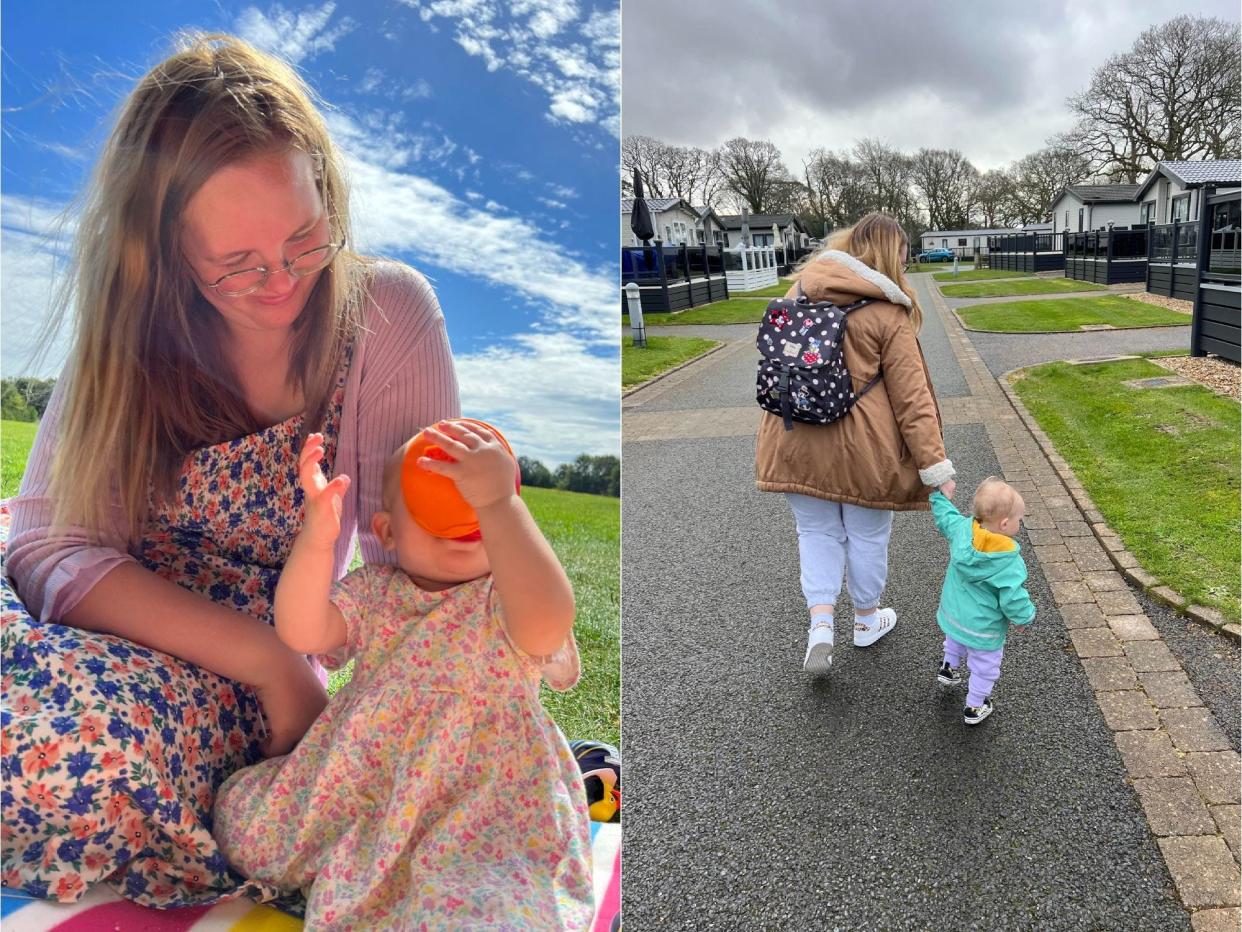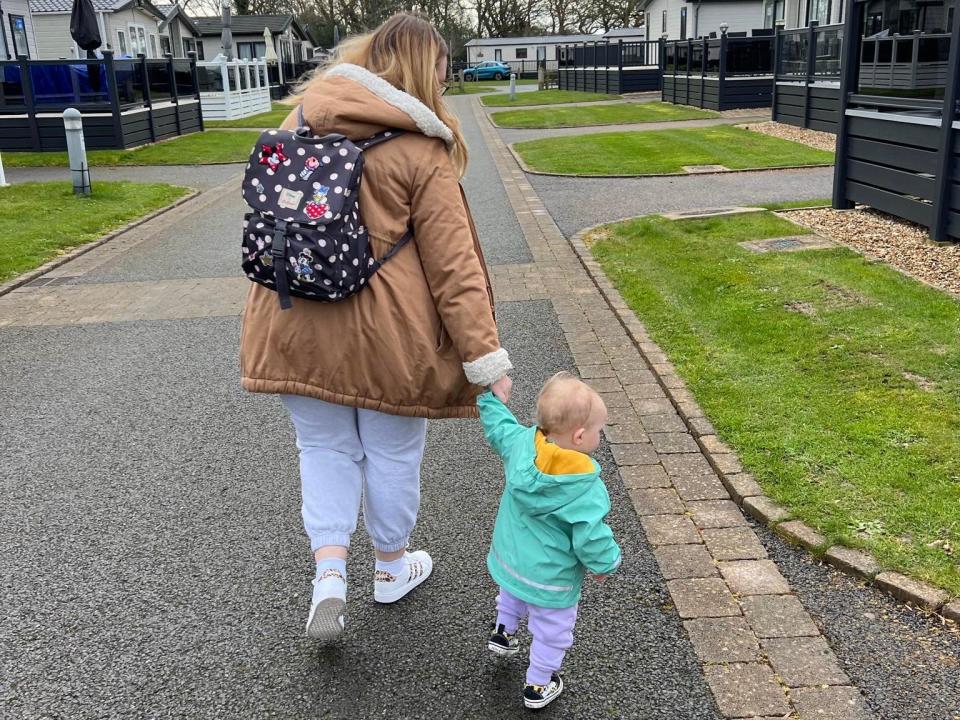I went back to work before my daughter was 1. People judged me for it.

In the UK, maternity leave is typically at least 9 months, though people often take off a year.
I went back to work 8 months after my daughter was born and people made judgmental comments.
I needed to work not only for the income, but because working makes me a better parent.
I returned to work when my daughter was just 8 months old, and deep down, I knew I wasn't quite ready. I still wanted to be at home with her, but I had been looking for a new job even before I went on maternity leave, so when a new opportunity came up, I just couldn't pass on it.
The first month was really hard. I remember coming home at 6 p.m. and crying while rocking her to sleep. I was nervous about starting a new role and juggling time with my family, especially as I was still breastfeeding, so I was also attempting to pump in the office, during my commute on the train, and everywhere in between to make sure my partner and family could feed her while I worked.
Eventually, it got easier for both of us. We got into a bit of a routine, and I felt much happier. There are also a lot of other working mothers at my workplace in similar situations too, which made it seem a lot more normal — and made me feel less guilt-ridden.
When I finally went to a work event, a comment left me shocked
I finally built up the courage to leave my still-nursing child at home for the evening and decided to attend a networking event. "Why did you choose to return to work full-time? Did you think about going part-time?" a professional from another organization asked at the event.
I was shocked. I knew the question wasn't asked with malice, but the undertone of judgment was still there. Immediately, I was filled with emotion.
"I should be at home with my baby. That's what people think, don't they?!" I found myself thinking.
I had to take a minute before I replied and explained that I love my job and want to progress my career. Of course, I also felt I had to add the caveat that I'm fortunate to have a partner and family to help out with childcare.
I'm actually a better parent when I'm working
It's true that progressing my career is important for both me and my family. But what I couldn't say at that moment was that I'm actually a better parent because I work. I struggled with postpartum depression when my daughter was first born, and those challenges lasted until she was 6 months old.
Being on maternity leave made me feel trapped and isolated. I was ridden with mom guilt and never felt like I was a 'good enough' parent.
A few months later, I took my now-1-year-old to a toddler playgroup — a rare opportunity for us both to socialize. Quickly, the other moms and I got talking about returning to work when one of them asked, "Didn't you want to take the full year off to be with her?"
I just wanted to melt into the floor. I'm fortunate to live in the UK where parental leave is much more generous than other places around the world. Taking one year of parental leave is common but most women will only receive statutory maternity pay for nine months, unless their employer offers them more.
It feels like such a privileged position to ask parents why they work. My employer at the time only provided statutory leave and pay, which meant I quickly ran out of time before I had no income.

I know I'm doing what's right for me, but I still worry what people think
Only recently a close friend of mine told me she's choosing to be a stay-at-home mom after she has her first child later this year. She went on to say how important the first years of a child's life are, adding that she wouldn't feel right going back to work and leaving her child.
It's her right to make this choice, but stating it as a universal truth hurt, and it felt like saying that the choice I made was the wrong one. I think a comment like this would have hurt no matter where it came from, but hearing it from a friend hurt more. Ultimately, I have to work to survive. My partner and I both work full-time, and we have to so we can pay our bills. I can't "choose" to be a stay-at-home mom. It would not be possible to pay our mortgage and bills and feed our kid if one of us didn't work — or even if one of us worked part-time.
That's a very normal reality for many families everywhere, yet I felt like the worst mother for working. My hands are tied, I have no other options and still, I feel awful.
I mentioned to my partner how I felt about working and about the comments I was getting as a working mom. Of course, he was supportive, telling me that I was doing what was best for our daughter and family.
My family and friends supported my decision in addition to helping me with childcare. I had another friend who'd gone back to work even earlier than I had, and she continues to tell me that while juggling work and family life can be difficult, it is so worth it to have your own career and a family. She constantly reminds me that I can have both.
My colleagues have also been supportive. I remember my CEO telling me stories of breastfeeding or how often her own children interrupt meetings. It helped a lot to know people were in my corner.
My daughter comes first, full stop. Shaming working mothers who have no other option — for whatever reason — helps no one. Ultimately, we shouldn't judge anyone who wants to progress their career and their families simultaneously.
Read the original article on Business Insider

 Yahoo News
Yahoo News 
